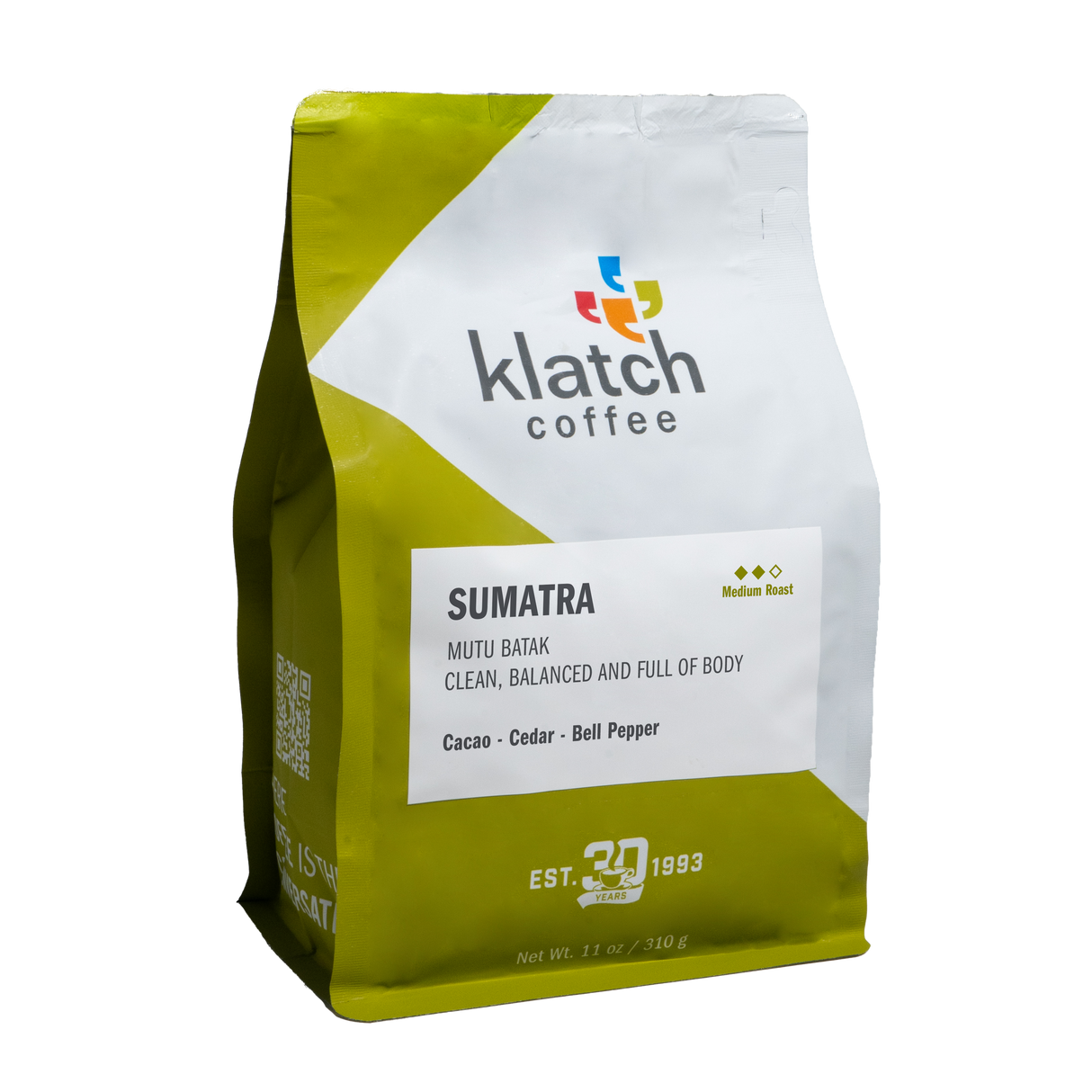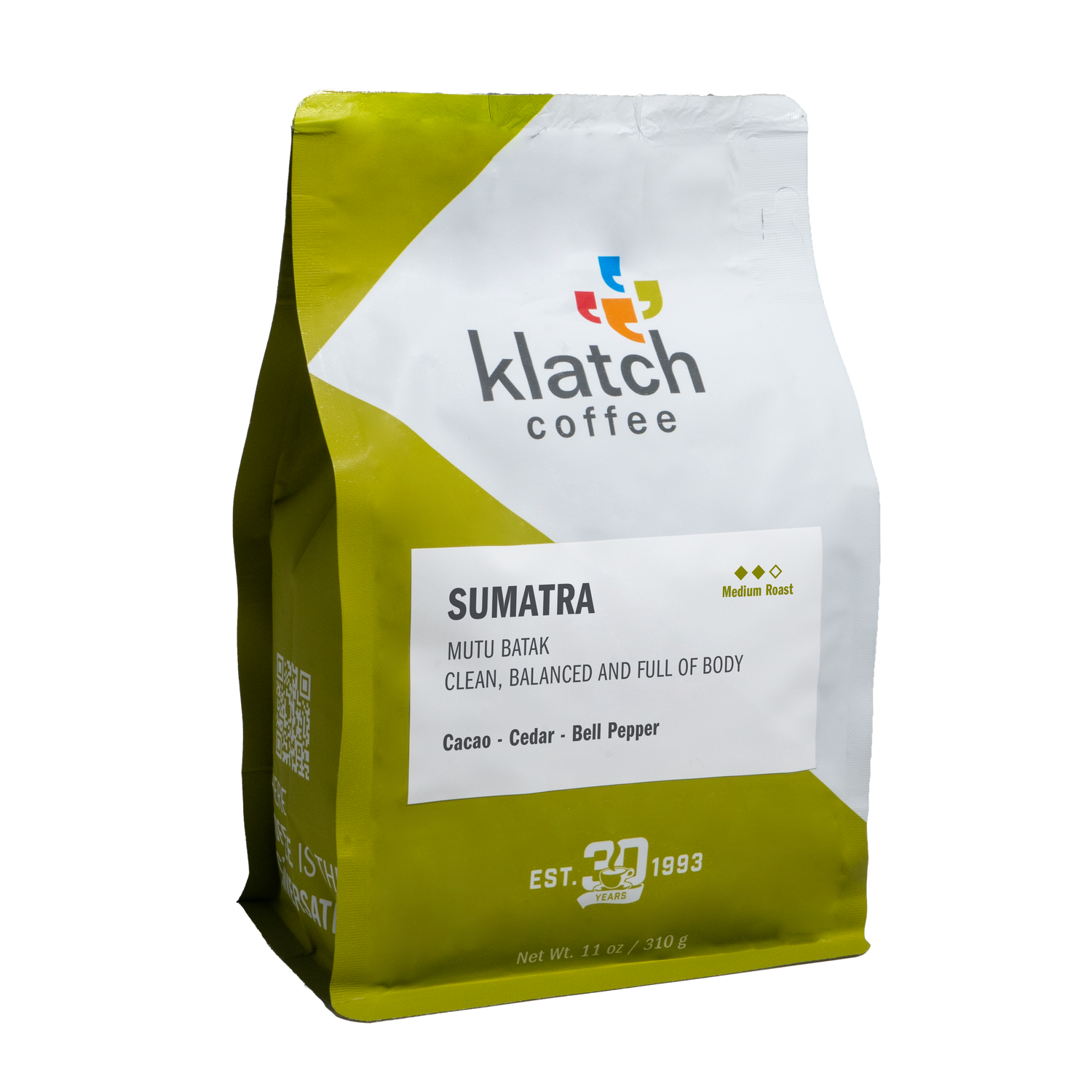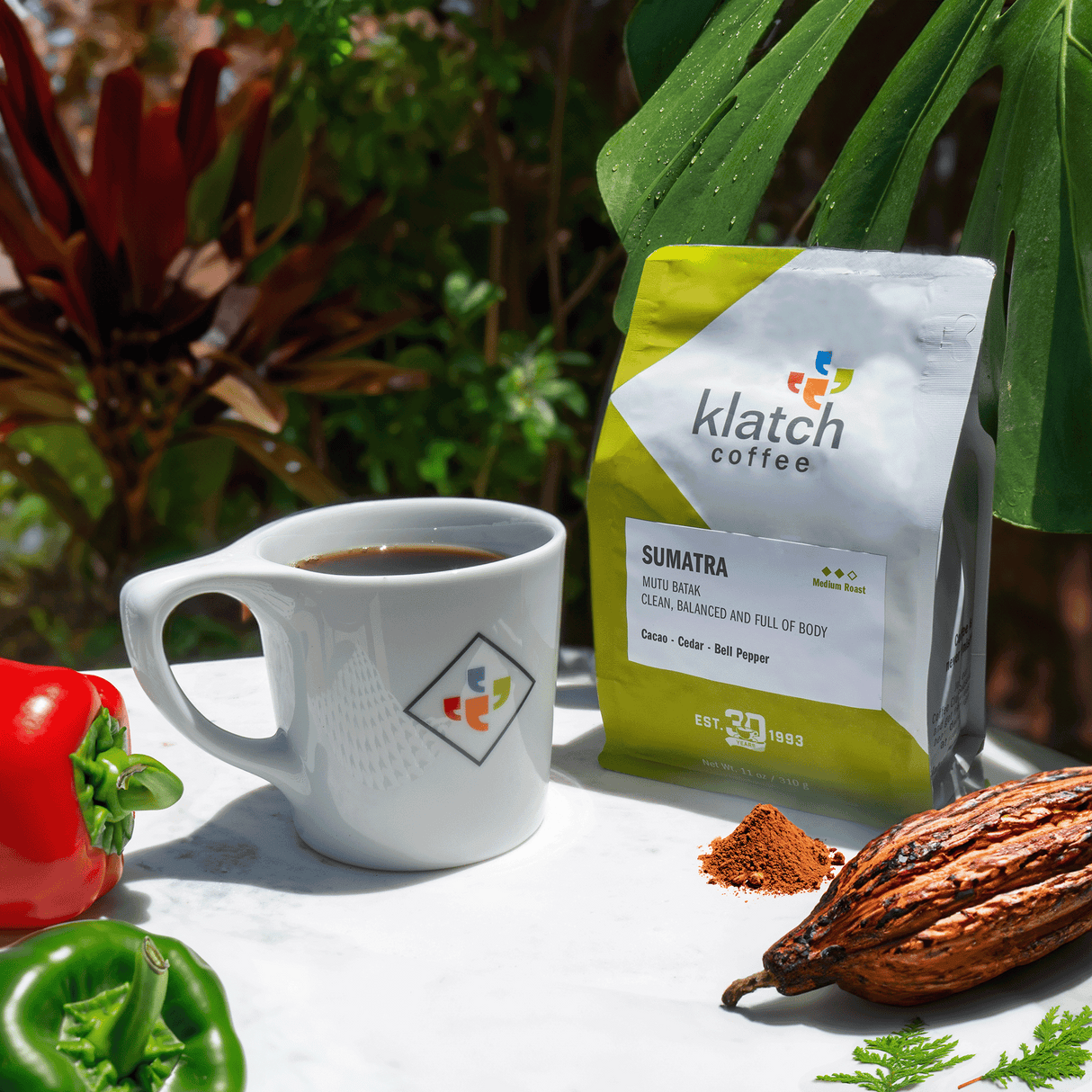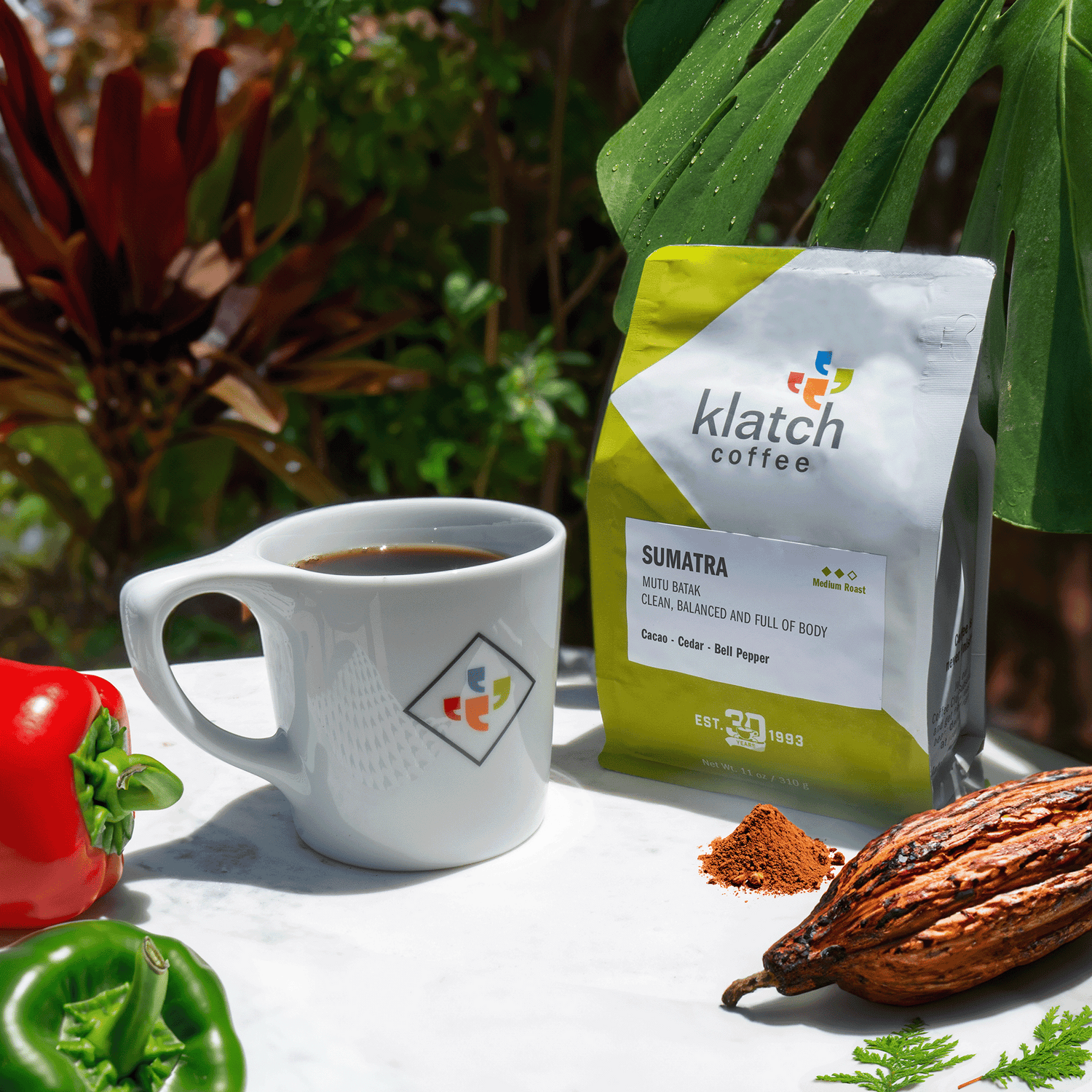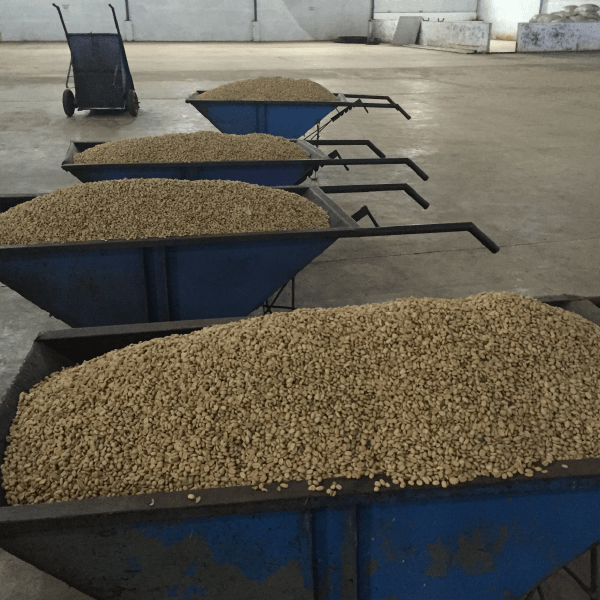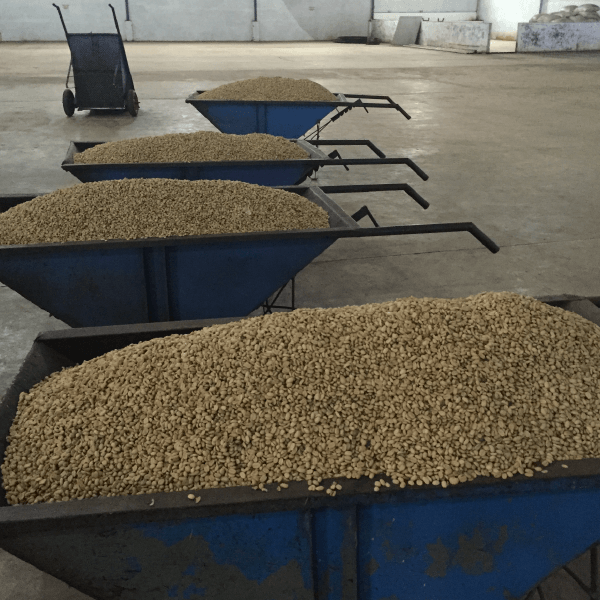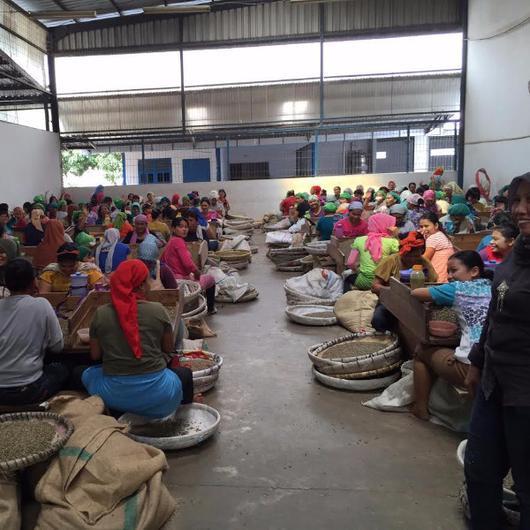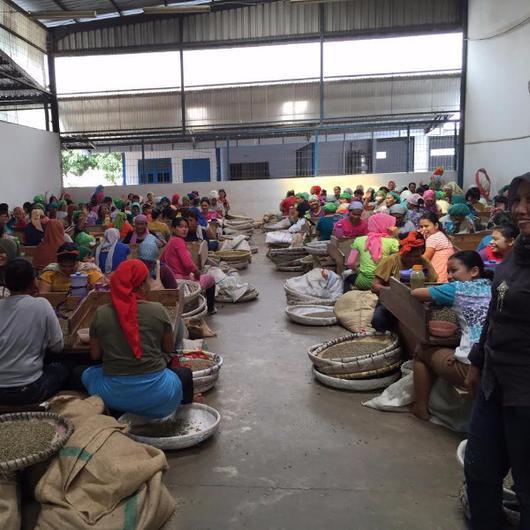Sumatra Mutu Batak
Roasted to Order
Roasted to Order
Always roasted to order, so you receive the freshest coffee possible.
Free shipping on orders over $50
Free shipping on orders over $50
Enjoy free shipping on all $50 orders.
Starting a club subscription? Shipping on club orders is always free, regardless of order size.
Description
Description
Not your father's Sumatra. This new generation Sumatra has flavor notes of cacao, cedar and bell pepper with a hint of lavender floral notes. A cup that is very clean and balanced while still providing the body one expects from Indonesia.
The Sumatra Lintong Mutu Batak comes from selected producers surrounding the town of Lintongnihuta in the Provinsi Sumatera Utara (Northern Sumatra Province). This specific area is located on the southern shores of Lake Toba, which is the largest volcanic lake in the world. The soil around the southern part of the lake is volcanic which leads to exceptional terrain for growing coffee. The town of Lintong Nihuta sits on a plateau that ranges from 1000 meters with a few farms to around 1300 meters.
Specifications
Specifications
-
Roast Level
-
VarietalAteng, Jember
-
Process
-
Farm
-
Farmer
-
Region
-
Mouthfeel
Growing Coffee in Sumatra
Growing Coffee in Sumatra
Wet-Hulling Process
Wet-Hulling Process
Award-Winning Coffee Review
Award-Winning Coffee Review
Payment Methods
Quick, easy, and secure
Klatchcoffee.com accepts Visa, Mastercard, PayPal, and Apple Pay.
